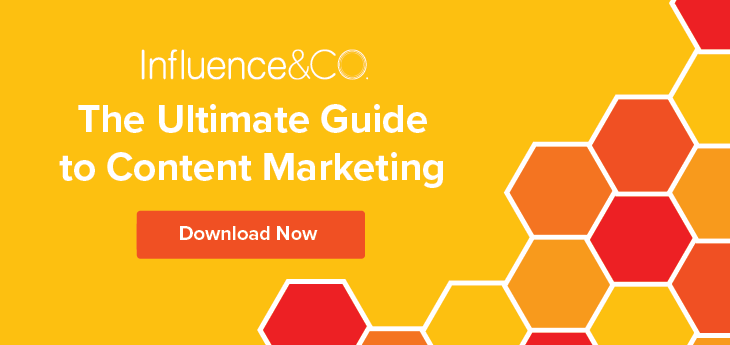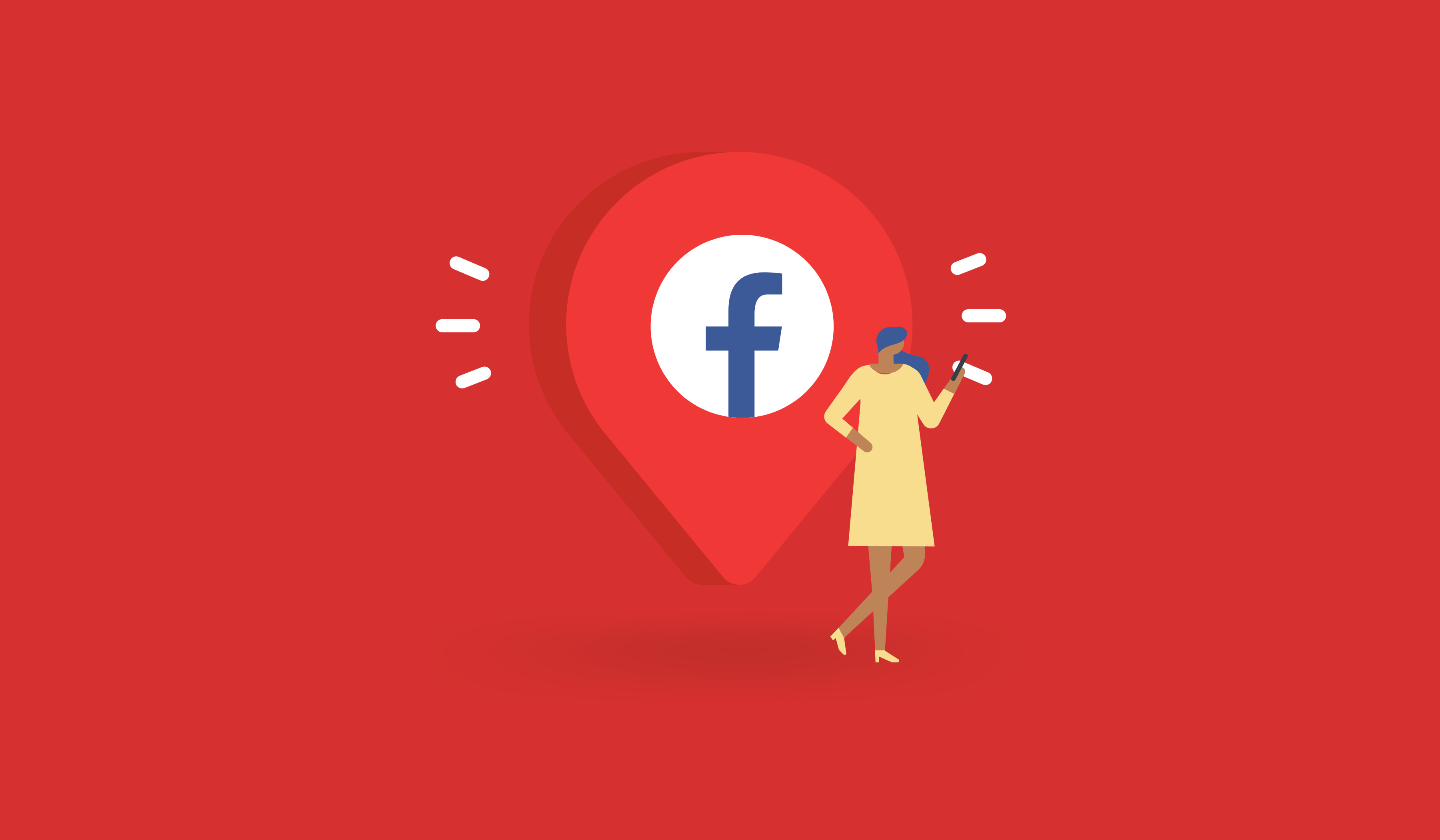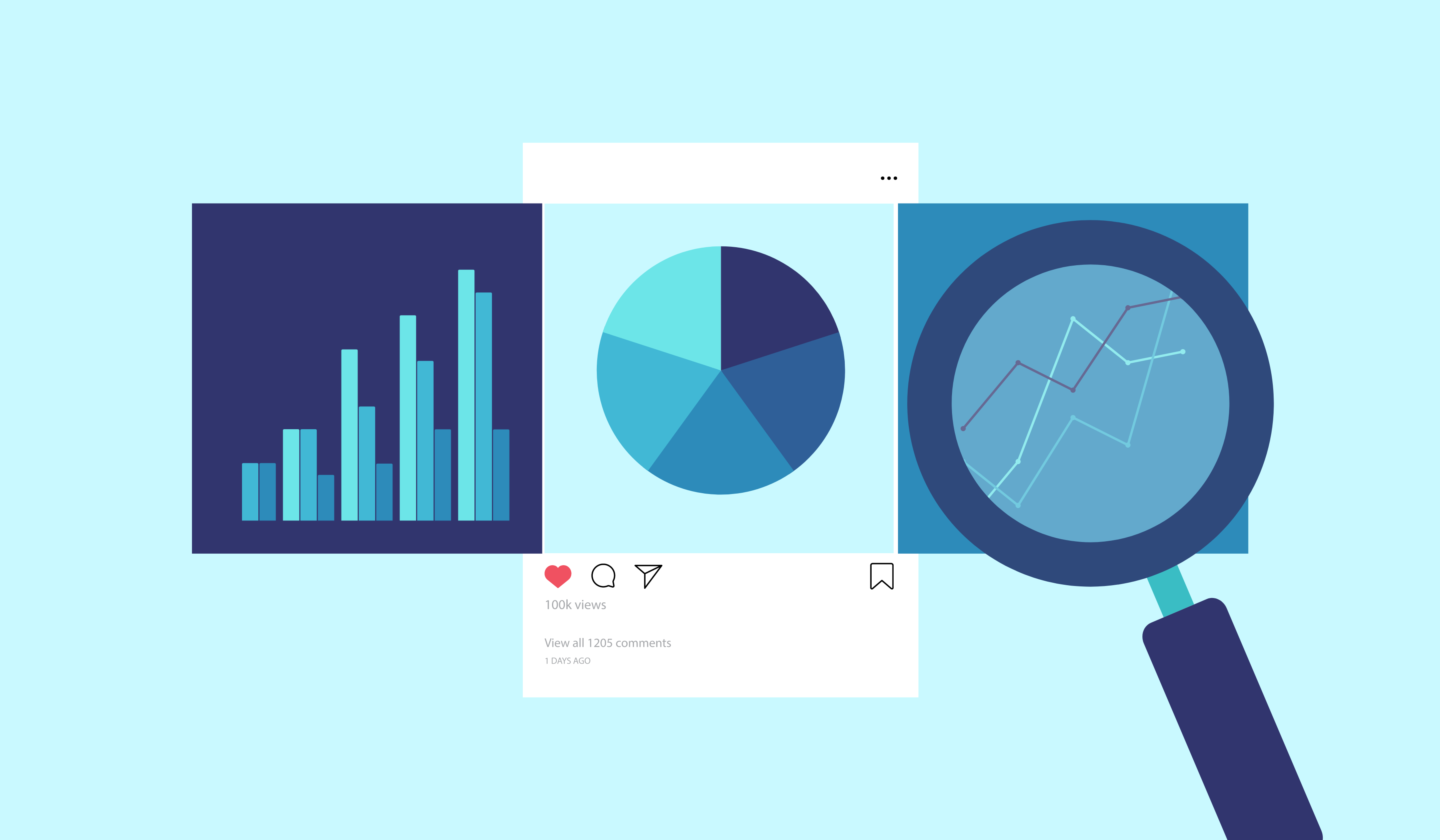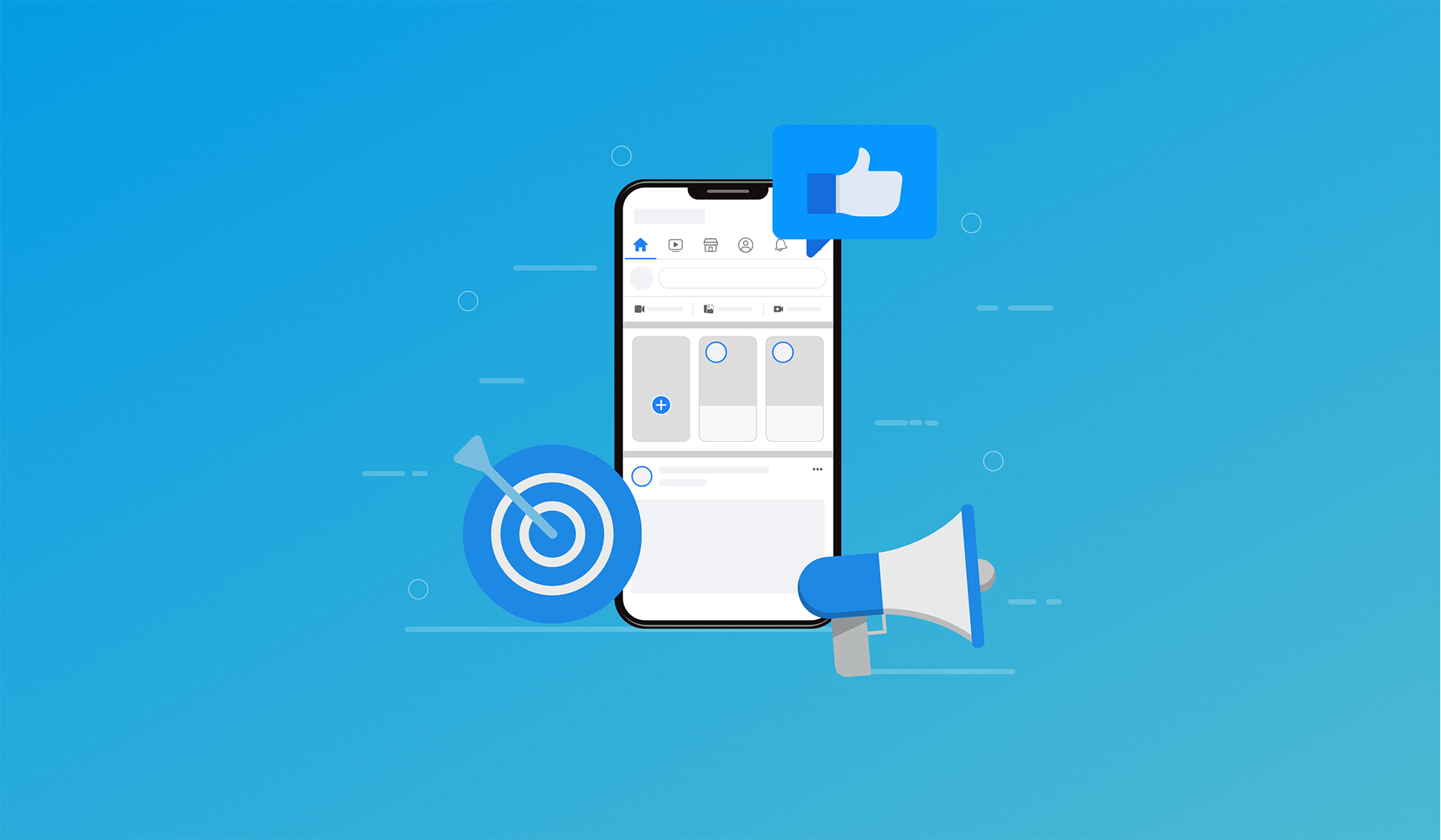Facebook marketing was once simple and straightforward, but since drastic changes have occurred over the past few years (the great Facebook-Apple transparency battle comes to mind), businesses have been struggling to keep up. Facebook often wants you to “pay to play,” or spend money on its advertising tools in order to reach people — sometimes the very people who have already liked your page.
For instance, the average organic reach of a Facebook post teeters at an all-too-low 5.2% of the page's total likes, which means if you want more of your page’s followers to see your newest or most important posts, Facebook wants you to pay for advertising.
While organic Facebook marketing has become a challenge, that doesn’t mean this strategy is moot. You can still optimize your Facebook marketing strategy — especially locally — in several ways.
7 Local Facebook Marketing Strategies to Drive Web Traffic
If you're looking to drive more traffic to your site and increase your sales, try these seven local Facebook marketing tips that are sure to help you work with the algorithm, not against it:
1. Complete your business profile.
If you have local customers and clients looking for a business like yours on social media, they might be missing out if they’re not seeing your page pop up in search results. A simple way to make sure you’re at peak discoverability is to complete your Facebook page’s business profile.
In this profile, include the following information:
-
Your business hours
-
Your business location — especially so Facebook can show targeted results if users are looking for businesses near them
-
Contact information, including an up-to-date landline or mobile number and an email address where customers can reach you
-
An optimized "About" section that includes relevant keywords your target audience might use if they’re searching for businesses like yours
A great example of an optimized Facebook business profile is by FreshBooks. In the below screenshot, you can see that FreshBooks' Facebook page gives customers complete details about the business, including SEO-friendly descriptions and pertinent contact information.
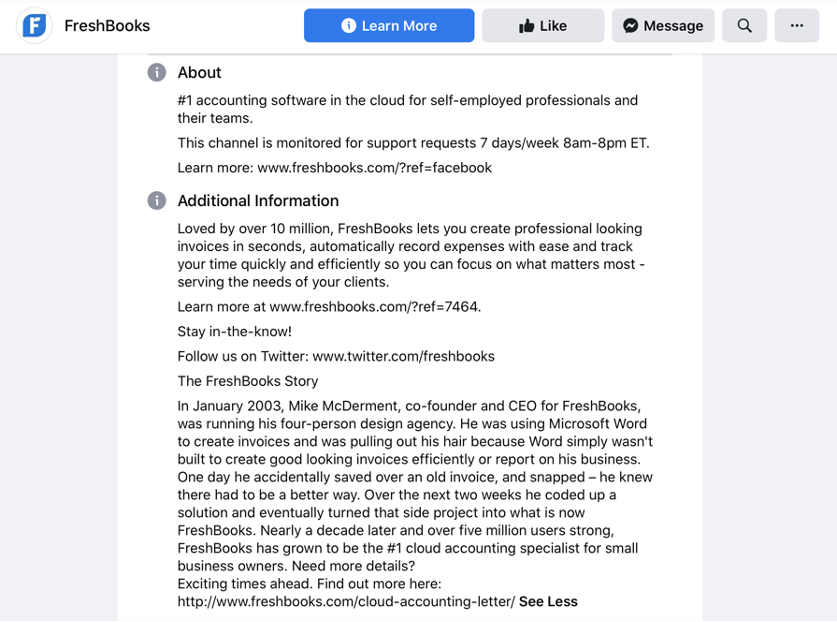
2. Create local content.
To win at local marketing, you’ll definitely want to create local-focused content. This means tapping into your community’s latest news and trends to create content that your users will find relevant.
For example, you might create posts related to a new favorable local bill that was passed in your area. Or you could simply tap into daily experiences people have in your community, such as their weekend plans or upcoming local holiday celebrations.
This Jasper’s Market ad is an example of targeting people within the local community. And it even clearly shows the audience how they can find the market's exact location.
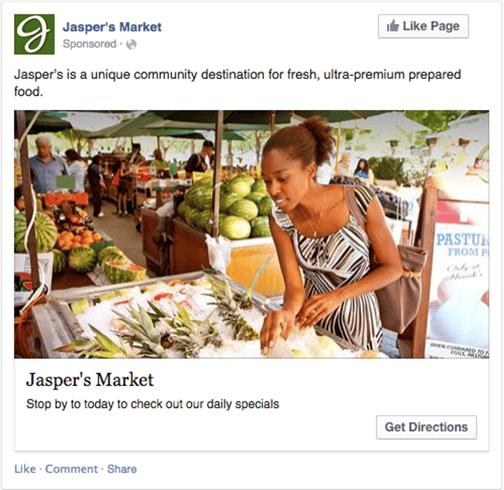
—
Need a system for keeping track of your social media marketing? Click below to access your free template!

—
3. Segment your audience using local Facebook groups.
Facebook has been pushing its "groups" feature as a main part of the app’s experience. Your business can leverage that by creating different groups for different segments of your audience.
UNILAD, for example, is a company that publishes news, viral videos, and fun stories that cater to a wide set of people. Based on consistently top-performing posts, UNILAD found that one of its most prominent market segments is travel enthusiasts. So UNILAD started a dedicated “UNILAD Adventure” Facebook page and a corresponding group just for readers who enjoy sharing travel stories and photos.
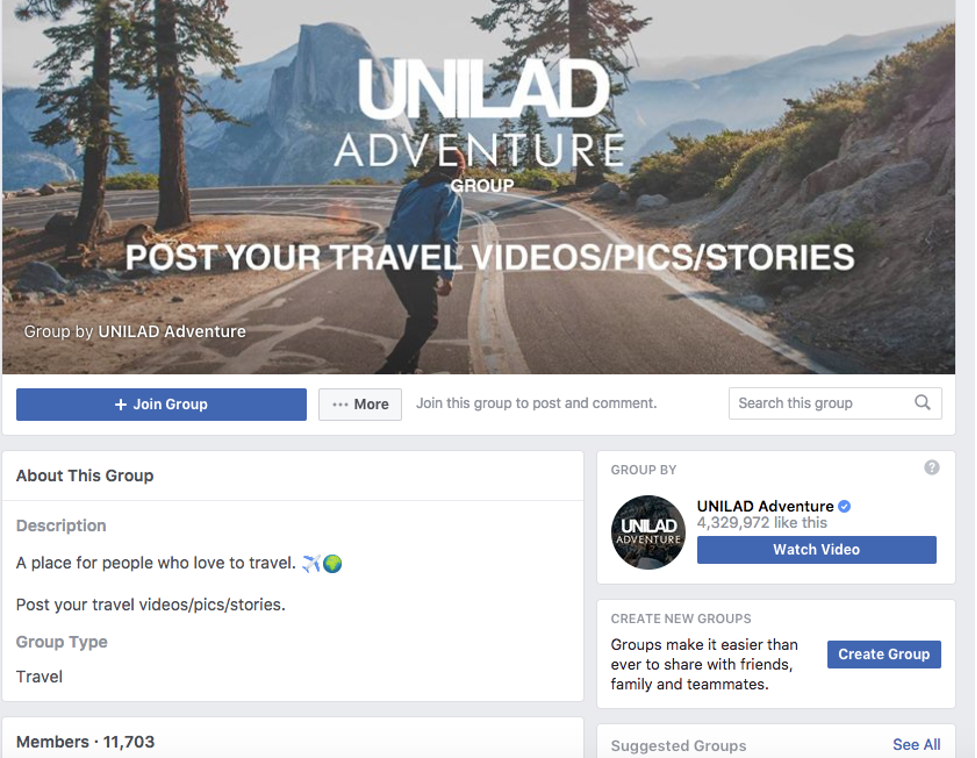
Your business can use this strategy, too.
-
If you have multiple brick-and-mortar stores, dedicated groups for each location's community can help everyone stay up-to-date with new announcements and promotions specific to each store.
-
You can encourage people to share their common interests in a niche-specific group, just like the UNILAD example above.
-
Your local Facebook group can even be temporary — created only for an upcoming event or webinar you’re hosting around your local community.
4. Launch local virtual events.
In the era of social distancing, businesses have had to get creative to connect to their customers and audiences. Instead of hosting live events in your physical space, consider turning these into virtual events that still gather people in the same digital space.
Invite local talent to host or entertain guests, and be sure there’s a clear objective and benefit for audiences to attend. You might, for example, host music events or a virtual trivia night if you’re a local pub whose regular customers aren’t able to visit as often. Or you can host high-value webinars that teach your audience how to achieve certain results they normally get from your business right from home.
5. Promote your business using local ads.
We mentioned earlier that Facebook’s new algorithm makes it tricky for brands to reach their audience organically. By creating location-specific ads, you can reach more of your audience while still creating a more personalized experience for them.
When you’re creating your ad, you can limit your ad’s range to a particular geographic location. Facebook Ads Manager lets you specify where you want your ads to appear — down to the exact mileage radius. But be sure to experiment with different audience settings to see which converts the most.
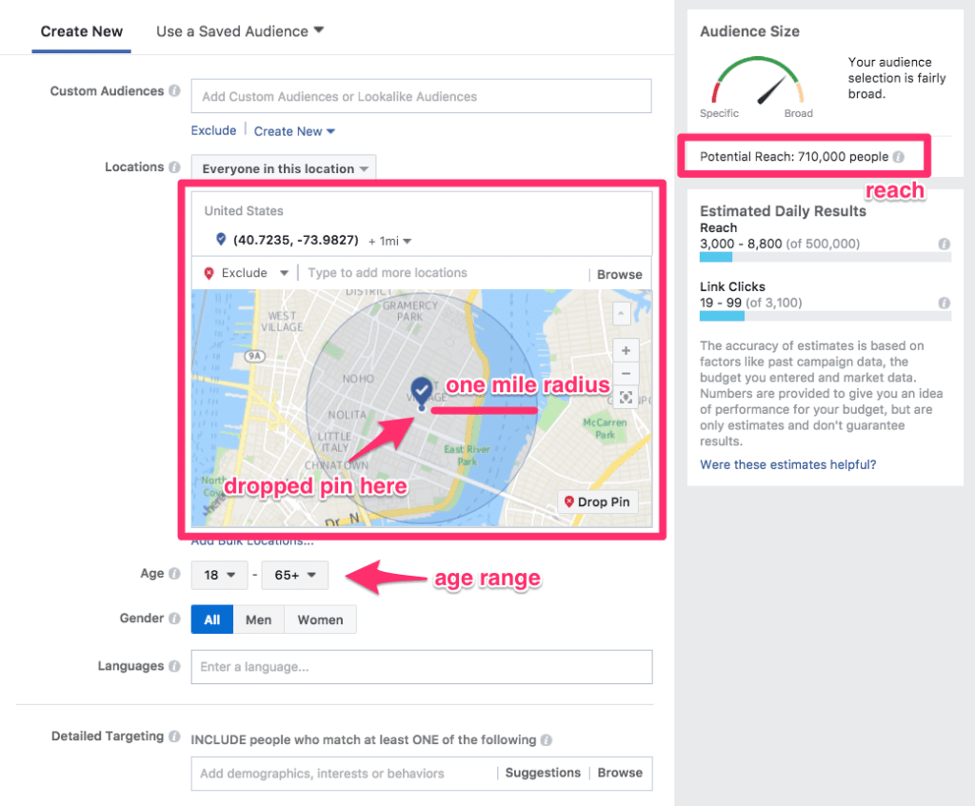
6. Publish user-generated content.
Encourage your audience to be a part of your brand’s marketing and conversations by sharing user-generated content. Examples of this could be comments about your products or services, people using your products, or any type of post that consumers make about your brand.
To get the ball rolling, you can consider working with local influencers in your area to create user-generated content for your Facebook marketing campaign. Determine the kinds of posts they ought to create, specify any required hashtags, and then curate their content on your page.
BrainStation uses the recent projects and work of its UX Design Bootcamp Online students as user-generated content to encourage interested participants to enroll and create similar projects themselves.
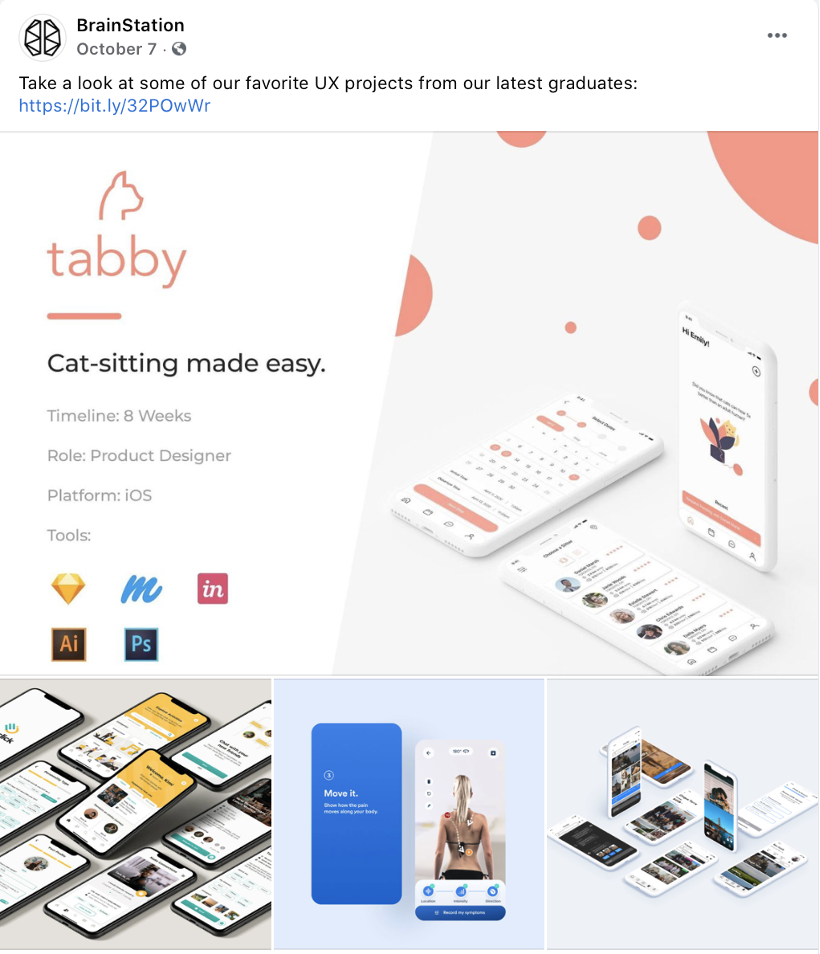
7. Share customer reviews and testimonials.
Finally, one of the best ways to use Facebook marketing is by sharing great reviews and testimonials from actual buyers and customers. This creates trust between audiences and your brand because they see real people are using your products or services and getting real benefits from them.
You can share these reviews and testimonials right as you receive them via screenshots or pasting their reviews into beautifully designed posters. But consider turning more successful testimonials into full case study posts on your website that you can later share on your Facebook page.
Local Facebook marketing doesn’t have to be such an uphill climb if you know what to prioritize and which strategies really deliver. Use all the tips you’ve learned above to create a Facebook marketing plan that reaches your audience, gives them value, and gets you more leads and sales.
To dive deeper into how you can leverage content to engage your target audience, download your free content marketing guide below!
